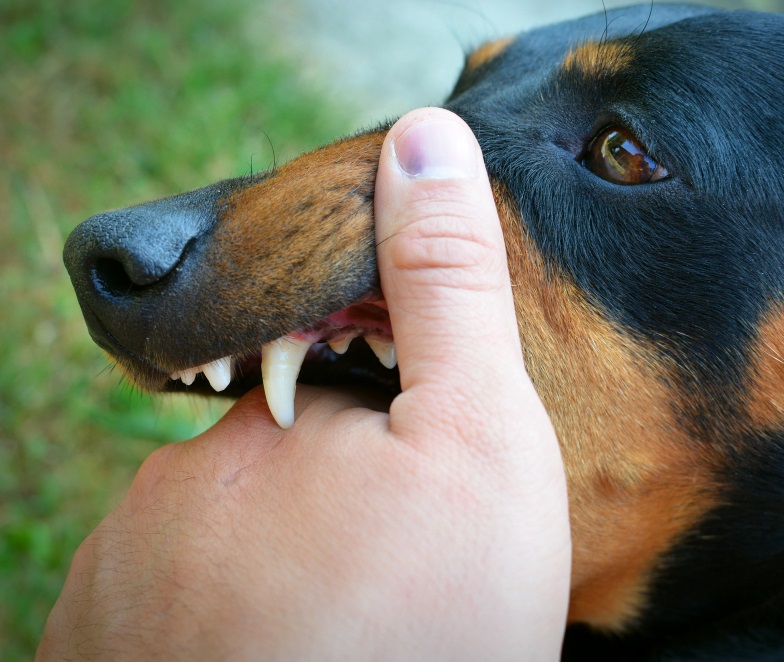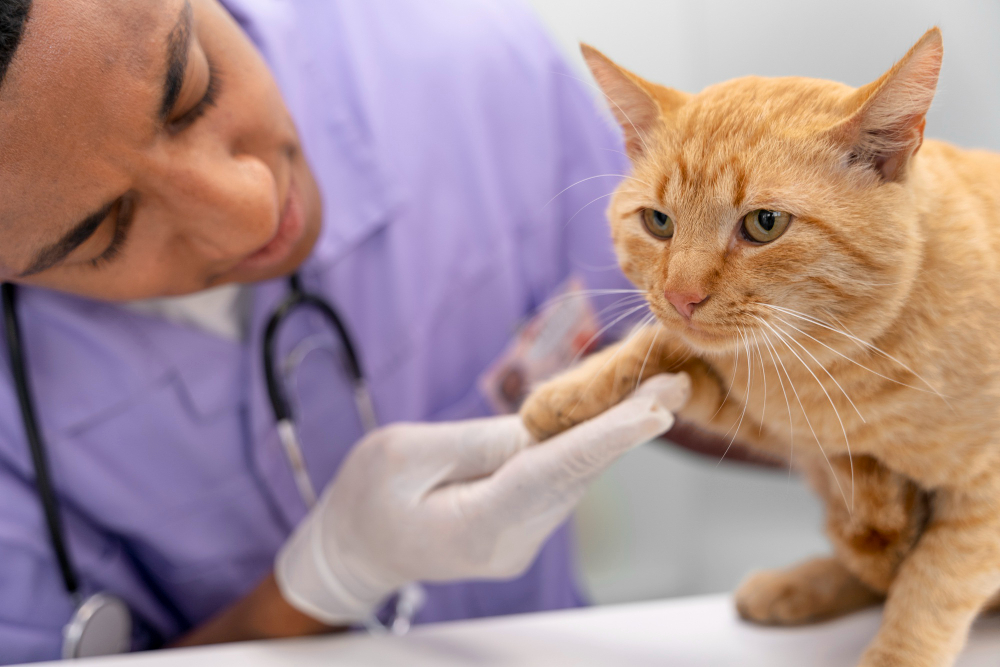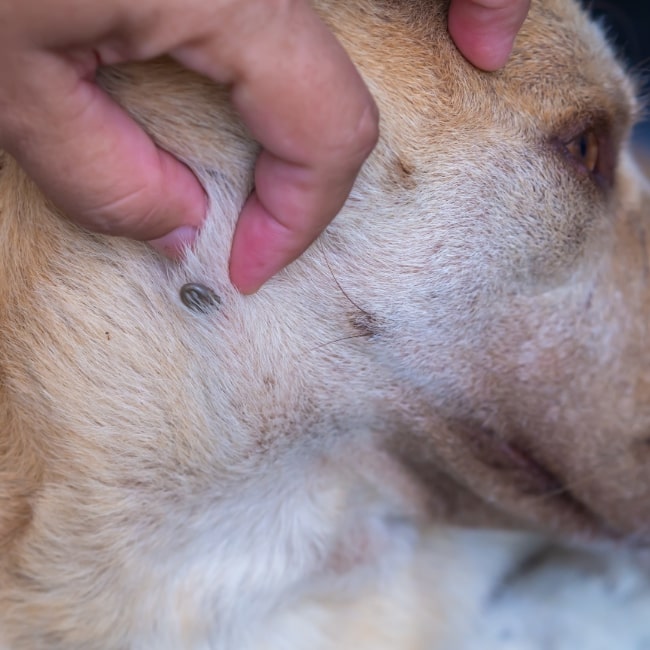
Preventative care is the best kind of care. Vaccinating pets against contagious diseases and viruses benefits their well-being and quality of life. As with humans, vaccinations are developed for some of the worst diseases affecting our pets. Many of the vaccinations are given in a series to help build up the appropriate immunity for your pet. Your pet will not be immune from the disease or virus until the whole series of vaccinations is complete. If your pet has any previous vaccinations, it is always beneficial to bring with those records to an appointment with us to ensure we have all vaccination information up to date. If you have a brand new pet from a rescue, humane society, pet shop or breeder and they gave you any information concerning vaccinations already given to your new pet, be sure to bring these into your first visit with us.
We can guide you through the right pet vaccination schedule for your specific pet and concerns.
Due to the commitment of owners to preventative medical care for their pets, we are seeing an average pet’s quality of life and for many their lifespan, continuing to improve due to increased protection from disease, so please don’t wait to talk with one of our professionals about your pets’ immunizations.
Immunization for your pet is important, but it shouldn’t be full of pressure. We’re here to explain to you the value of all of the vaccines we offer, and work with your pet’s specific risks, your values, and budget, to determine what your pet needs.
“Core Vaccines” is a common term used in clinic as vaccines we recommend for every pet no matter their lifestyle.
Rabies is a vaccination that is required on a state level for dogs, and strongly recommended to be up to date in cats as well. Rabies is a fatal disease that can affect any mammal. This means humans can get it from their pets. It is usually transmitted through saliva in a bite wound. Symptoms vary but can include aggression, confusion, and withdrawal from activity. The vaccine can be given at 16 weeks of age and the first rabies vaccination is valid for 1 year. After that your pet will need to be vaccinated for Rabies every 1-3 years depending on the type of vaccination provided in clinic and based on your city ordinance. If you move to another city, make sure that the rabies vaccine given complies of that particular city. This is important for proper licensing of your pet, or if your pet should ever bite a person or another animal. Rabies is commonly carried by wildlife such as Bats, Foxes, and Raccoons.

This vaccination combination can vary depending on the company that the vaccine is obtained through as well as clinic preference. There are 4 viruses that your dog is inoculated for with this vaccine, and these include Canine Distemper, Adnovirus-2 (Hepatitis), Parvovirus, Parainfluenza. Therefore, you will often see this vaccination notated as “DHPP”,“DA2PPV”, “DA2PP” or “DHPPV”.
This vaccination should be started no earlier than 6 weeks of age, then should be boostered every 3-4 weeks until they are 16 weeks of age. Adults will receive this vaccination every 1 – 3 years depending on the type of vaccine that is used.
“Non-Core” vaccinations is another term commonly used in clinics. This is a way to describe the other vaccinations we have that are very beneficial to most pets, but their necessity can depend on you and your pet’s lifestyle.

Bordetella also known as “kennel cough” is very contagious amongst the dog population. Dogs can be exposed to kennel cough in a variety of ways including exposure to infected dogs at a dog park, boarding/doggy day care facilities, groomers, dog group training classes, dog accessible breweries or patios, or letting your dog interact with other dogs on a walk around the neighborhood. Symptoms included with kennel cough include a dry hacking cough, followed by retching and/or gagging. Often times due to the frequency of the cough, dogs can become dehydrated because they are unable to keep down water during coughing fits, or become lethargic and stop eating. There are a variety of vaccination styles for Bordetella, these include your typical injectable vaccine, an oral vaccine as well as a Nasal vaccine. We currently carry the Oral Bordetella. Puppies can get oral Bordetella as early as 8 weeks of age. Adult dogs need this vaccine annually.
Leptospirosis is a disease caused by infection with Leptospira bacteria. These bacteria can be found worldwide in soil and water. There are many strains of Leptospira bacteria that can cause disease. Symptoms in dogs include fever, vomiting, refusal to eat, severe weakness, stiffness, muscle pain, abdominal pain and more.
Leptospirosis is a zoonotic disease, which means it can be spread from animals to people. Infection in people can cause Flu-Like symptoms and can cause liver or kidney disease. In the United States, most cases of human leptospirosis result from recreational activities involving water. Infection resulting from contact with an infected pet is much less common, but it is possible.
Both Lyme and Leptospirosis vaccinations can be started in puppies as early as 9 weeks of age, and then boostered in 3-4 weeks. Both vaccines are then annual vaccinations after those initial 2 boosters.


There are 3 viruses that your cat is protected against in this vaccination. They include Feline Rhinotracheitis virus, feline calicivirus and feline panleukopenia virus.
This combination vaccination should be started no earlier then 6 weeks of age, and boostered every 3-4 weeks until 16 weeks of age. The vaccine is given in a year after the first series is complete. Adult cats should be vaccinated every 1-3 years depending on their potential risk and vaccine type.
Feline Leukemia virus infects cats all over the worldand it only affects cats, it cannot be spread to people, dogs or other animals. This virus severely suppresses the immune system and can also commonly cause anemia or lymphoma. FeLV is passed from one cat to another through saliva, blood, and to some extent, urine and feces. If cats groom each other, share food or water bowls, they can spread infection. The signs are very vague or non-existent at first. Cats can’t have a full recovery from this disease, as it is not treatable, but they may be infected and not develop any symptoms of it for many years. The current recommendations for vaccinating for Feline Leukemia are based on age and exposure. Younger cats are more susceptible to infection, and any cat that is not strictly indoors should be vaccinated against the disease.
All cats should at least be screened for this disease. This vaccination series can be started at 12 weeks of age after a negative FeLV test and needs a booster in 3-4 weeks to provide adequate immunity for the first year. After this first series, it is done on an annual basis.
All puppies and kittens need essential vaccines when they are young.
Puppy vaccines are given at regular intervals to protect them from certain serious illnesses:
Kitten vaccines are also given on a regular schedule to build up their immunity:
Adult cat and dog vaccination is also important. The schedule depends largely on your pet’s own needs and medical history. We can tell you what your pet will need moving forward. If you’re looking for cat and dog vaccinations near you, reach out to us in Champlin.
A normal reaction to vaccines includes a mild to moderate amount of tiredness, general muscle soreness, a short-term appetite-loss and delayed local swelling at the site of injection which typically resolves within 2-3 weeks.
Allergic reactions to vaccines are uncommon, however they can occur in some animals. If you notice facial swelling, hives, severe tiredness, vomiting, or diarrhea, please call us immediately. Or if we are out of the office, please contact a local emergency clinic.


Protecting your pet from serious illness is important to us at Champlin Park Pet Hospital. We’re here to answer your questions and give you the confidence you need to make the right immunization decisions for your pet from puppy/kittenhood right into their senior years. Contact us for an appointment today.